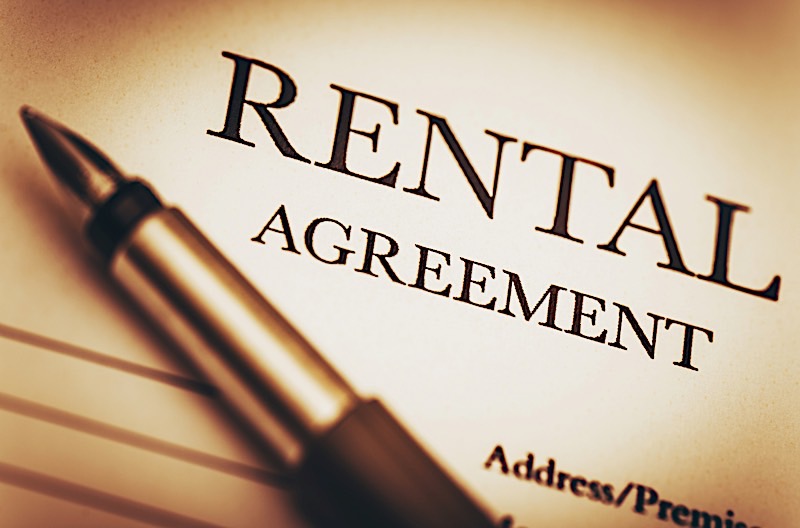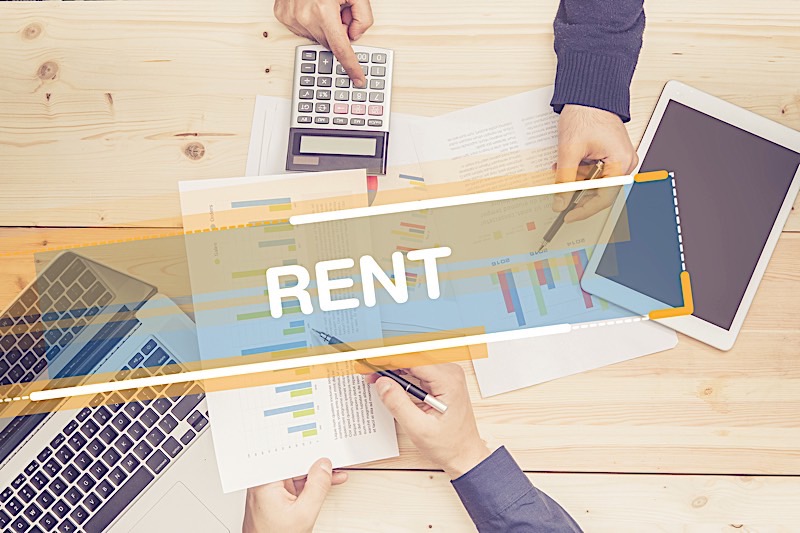How To Initiate A Rent Increase Without Losing A Single Tenant
By Than Merrill
Few things are more polarizing in the real estate landscape than the idea of a rent increase. Landlords are typically ecstatic over the possibility of increasing their income, whereas tenants are, well, less than enthused. The said, a good rental property owner needs to know how to navigate the waters of a proper rent increase with finesse and ease, at least if they want to maximize their profits.
How To Notify Tenants Of A Rent Increase
To be perfectly clear, the process for notifying a tenant of a rate increase will vary by state, so be sure to check with the proper authorities before moving forward with an increase of your own. That said, most states will require landlords to give “proper notice.” Again, the length of time is different from state to state, bust most seem to follow a 30 day rule, meaning landlords need to tell tenants they intend to initiate a rent increase at least 30 days before doing so. The notice must be in writing, and some states even require the notice to be sent through certified mail.
[ Thinking of buying a rental property? Get a FREE downloadable copy of our “Essential Contract Pack For Cashflow Real Estate Investors” ]

Determining Your Rent Increase
There is only one thing more important to tenants regarding a rent increase than the reason why prices are rising: how much they are rising. I highly advise against increasing the rent arbitrarily; don’t simply throw out a number without any reason to back it up. Not unlike making an offer on a property, you are free to throw out any number you wish, as long as you can cite a reason for doing so. In other words, don’t simply increase the rent because you can. Instead, determine why you are increasing the rent, and base your new price on the resulting data.
With the exception of rent controlled living spaces, homeowners and landlords have a legal right to raise their rent if it doesn’t conflict with a current lease. More specifically, landlords can’t carry out a rent increase in the middle of a lease, regardless of whether it’s year to year or month to month.
Landlords can raise the rent as long as they give proper notice, “which in most states is 30 days,” according to NOLO. As a result, most landlords will be able to raise their tenant’s rent as long as they tell them at least 30 days before their current lease ends. Of course, each state will coincide with different laws, so check to make sure you are in compliance with the laws in your area.
There is also no limit to the amount a landlord can increase their rent, but not so fast. It can be quite easy to want to increase the rent as much as possible, but I’d most likely advise against it. While a significant rent increase cane look attractive to landlords at first, you need to think of the repercussions; namely, those that involve your current tenant leaving at the end of their lease.
Instead of increasing the rent as much as possible, first land on a reason why you are increasing it in the first place, as it’ll act as your starting point. If for nothing else, the rent increase should be justified and proportionate to the reason why. If, for example, you are intent on increasing rent to compensate for a higher cost of living, the increase in rent should be just enough to cover it — nothing more, nothing less.
Rent Increase Laws
Let’s make one thing abundantly clear: rent increase laws will vary depending on whether or not the building is zoned in a rent-controlled area. More specifically, rent-controlled and rent-stabilized areas are subject to the rules set forth by local municipalities. The local governing bodies in charge of regulating rent-controlled homes are responsible for deciding how often and how much rents may be increased. That said, rent-controlled homes and apartments are basically the exception, and not the rule.
In reality, the majority of homes are not governed by a rent-controlled body, meaning the rules pertaining to rent increases aren’t exactly set in stone. In fact, you could argue that rent increases are subject to whatever the market will handle without actually breaking. Landlords are within their right to raise rents as much as they see fit. In fact, the loose laws around rent increases are what gave rise to rent-controlled zones in the first place.
While there aren’t too many restrictions on how much a landlord can raise rent, there are some on the amount of time they must give tenants. Most notably, landlords can’t raise rents without warning; they must abide by the rules set forth by their own state. More often than not, tenants must be given at least 30 days notice before the rent increases. According to NOLO, “the rent increase notice must be in writing; in some states, certified mail is required. Oral notices are ineffective in most states and, unless you specifically agree to the rent increase, you are not obligated to pay it.”
Perhaps even more importantly, rent increases can’t be enacted over the course of a current lease. Landlords have no choice but to abide by the rules laid out in the signed lease, and can’t increase rent until the lease is over.
How To Justify A Rent Increase
It is never a good idea to propose a rent increase without the proper justification. You had better have a good reason for increasing the rent you expect your tenants to pay, or you could find yourself with a problem down the road. And while you certainly have every right to increase your rent, some reasons are less likely to anger tenants than others. Here’s a few of the most accepted reasons for a subsequent increase:
-
Cost Of Living: As perhaps the most common justification, the cost of living is always going up, regardless of where you live. While there are rare exceptions of living costs declining, it’s more common that they’ll increase somewhere in the neighborhood of one to three percent per year. As a result, a rent increase may easily be justified by said trends. Tenants are more than aware of the cost of living, and many of them can at least accept the cost of living as a reason for their rent increasing.
-
Quality Of Life Improvements: Rent prices are often directly correlated to the quality of both the property and the neighborhood. Therefore, it’s reasonable to assume any improvements to the home or surrounding area would warrant a rent increase. What’s more, tenants are less likely to complain if they understand the reason behind the increase. The key as a landlord, however, is to both give and take at an appropriate ratio. That said, the rent increase should be in line with the improvements.
-
Interest Rates: Despite interest rates remaining near historically low levels, there’s no reason to believe they won’t inch higher and higher as we distance ourselves from the last recession nearly decade ago. That said, if interest rates continue to go up, as expected, it’s only fair to assume rents should to. If for nothing else it’s the easiest ways for homeowners to offset the increase in interest rates. What’s more, most tenants will understand the increase; they may not like it, but they’ll at least understand it.
-
Tax Season: In the event taxes are raised, landlords may offset the impending expenses with a rental increase. Not unlike interest rates, taxes will justify a rate increase, as long as it’s in line with the tax increase. Again, the tenants may not like the idea, but they’ll at least understand.
Justifying a rent increase has more to do with providing a reason the tenant can understand, and maybe even sympathize with. That way, they are more likely to accept the new rate, provided it isn’t absurd. Conversely, landlords that can’t justify a rent increase will most likely find their request met with more opposition than they would have appreciated. The idea here is to identify a cause an effect: circumstances changed, so you need to raise the rent — it’s as simple as that.

Rent Increase Summary
Rent increases are nothing less than a touchy subject for everyone involved. On the one hand, renters are never going to be happy about having to pay more for a place they are already living in. On the other hand, drafting a rent increase letter addressed to your tenants is a process that must be met with empathy and justification. If for nothing else, there’s a way to increase rent, and there’s a way that’ll cause more problems. To see to it that your efforts side with the former, make sure you take the appropriate steps when it does come time to carry out a rent increase.
Key Takeaways
- In most states, a rent increase letter must be sent to the tenant at least 30 days beforehand.
- Rent increase laws will vary by state, so make sure you are following the right steps in your own neighborhood.
- Understanding how to perform a rent increase is a valuable skill for an investor to have.